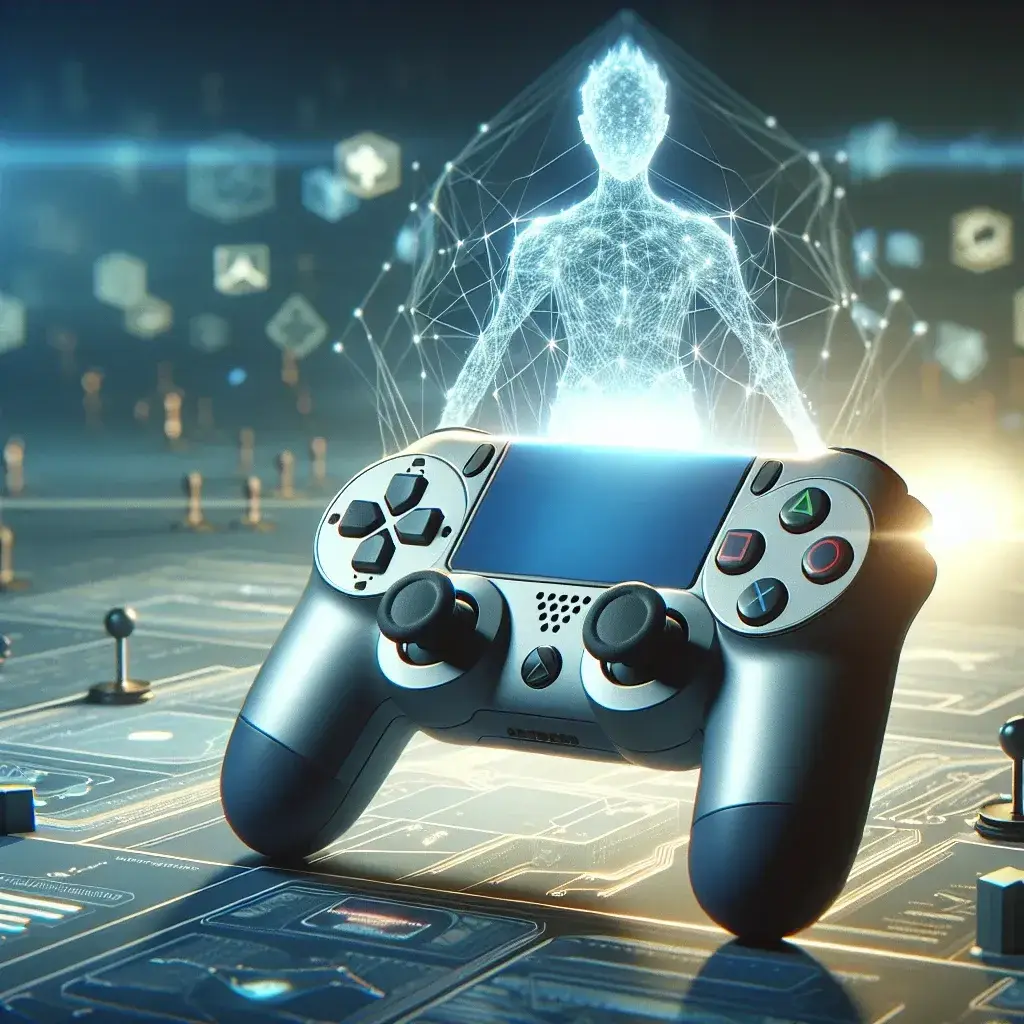Valve’s Handheld Gaming PC Prototype: A New Era of Portable Power?
The gaming world collectively held its breath recently when Valve, the enigmatic creators of Steam and the surprisingly successful Steam Deck, dropped a cryptic teaser hinting at a new handheld gaming PC prototype. While details are scarce, the mere suggestion has ignited fervent speculation and excitement among gamers and tech enthusiasts alike. This article delves into the potential implications of this development, examining its possible features, market impact, and the legacy it could carve within the landscape of portable gaming.
Dissecting the Teaser: What We Know (and Don’t Know)
Valve’s teaser, a short, enigmatic video clip, offered little concrete information. The footage, shrouded in deliberate ambiguity, showcased fleeting glimpses of what appeared to be a more refined and potentially more powerful iteration of the Steam Deck. However, the lack of explicit details has only fueled the flames of anticipation. The absence of specifications, release dates, or even a clear name leaves much to the imagination, which is precisely what makes this situation so captivating.
The most prominent takeaway from the teaser was the visual suggestion of a more compact and possibly lighter design. While the Steam Deck has proven to be reasonably portable, improvements in this area would undoubtedly enhance user experience. The subtle hints of improved ergonomics also raise the possibility of a more comfortable and intuitive handheld experience overall. This could involve adjustments to button placement, improved grip, or other design refinements aimed at enhancing long gaming sessions.
Building on the Steam Deck’s Success: A Foundation for Innovation
The Steam Deck’s success has undoubtedly paved the way for this potential successor. The original device, despite its initial skepticism, proved to be a compelling option for gamers craving a portable PC gaming experience. Its ability to run a wide range of titles, its robust customizability, and its surprisingly competitive price point all contributed to its positive reception. However, the Steam Deck also faced criticisms, including its battery life and occasional performance hiccups in more demanding games. These shortcomings provide a valuable roadmap for potential improvements in the new prototype.
By learning from the Steam Deck’s successes and addressing its shortcomings, Valve has the opportunity to create a truly groundbreaking handheld device. The new prototype could potentially boast significant performance upgrades, extended battery life, and an even more refined design, addressing many of the complaints levied against its predecessor. This strategic approach to iterative improvement demonstrates Valve’s commitment to refining its product and delivering an enhanced experience to its users.
Speculation and Anticipation: What the Future Might Hold
The gaming community is abuzz with speculation regarding the new prototype’s potential features. Many anticipate improvements in processor power, potentially incorporating the latest generation of AMD’s APUs or even venturing into custom silicon. This could lead to significantly improved performance, allowing for superior frame rates and higher graphical fidelity in more demanding titles. Increased RAM and storage options are also expected, further enhancing the device’s capabilities.
Battery life is another area demanding significant attention. The Steam Deck’s battery life, while adequate for many users, often falls short during extended gaming sessions. Improvements in battery technology, coupled with more power-efficient components, could potentially lead to a considerable increase in playtime on a single charge. This would be a game-changer for portable gaming, making long-haul travel or outdoor gaming sessions far more practical.
Beyond the internal specifications, the new prototype may introduce several design enhancements. A more ergonomic form factor, a higher-resolution display, or upgraded audio capabilities are all possibilities. Valve’s commitment to community feedback suggests that these enhancements might directly address concerns raised by Steam Deck users, creating a more polished and user-friendly experience.
Market Impact and Competition: Navigating the Handheld Landscape
The potential release of Valve’s new handheld gaming PC could have a substantial impact on the market. The Steam Deck successfully carved a niche for itself within the portable gaming space, challenging the dominance of Nintendo’s Switch and other handheld consoles. A more refined device with upgraded capabilities could solidify Valve’s position and potentially attract an even broader range of gamers.
However, the market is becoming increasingly competitive. Several companies are vying for a slice of the portable gaming pie, with manufacturers releasing devices with varying levels of performance and features. Valve will need to ensure its new device offers a compelling value proposition to remain competitive. This could involve strategic pricing, attractive software bundles, or unique features that differentiate it from the competition. The success of the new prototype will depend largely on its ability to address the needs and desires of modern gamers while maintaining a competitive advantage.
Long-Term Implications: Shaping the Future of PC Gaming
The development of Valve’s new handheld gaming PC prototype is not merely a product launch; it’s a statement about the future of PC gaming. It suggests that the demand for portable, high-performance PC gaming experiences is strong and growing. The success of such a device could inspire other manufacturers to invest further in this relatively new market segment, leading to increased innovation and competition.
This could lead to a future where high-fidelity PC gaming is no longer confined to desktop setups. The portability of such devices opens up exciting possibilities for gamers, allowing them to enjoy their favorite titles regardless of location. The long-term implications could involve a blurring of lines between traditional consoles and PC gaming, creating a more dynamic and diversified gaming ecosystem.
In conclusion, Valve’s cryptic teaser has created a significant buzz within the gaming community. While specifics remain elusive, the potential for a superior handheld gaming PC is undeniable. By building upon the Steam Deck’s success and addressing its limitations, Valve has the opportunity to create a truly groundbreaking device that could reshape the landscape of portable PC gaming for years to come. Only time will tell what the future holds, but the anticipation is palpable.
For more information on PC gaming trends, you can visit PC Gamer or Tom’s Hardware.

